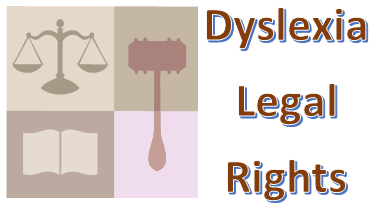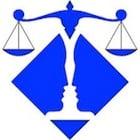Dyslexia & the Law
Dyslexia
What is Dyslexia?
Dyslexia is characterised as a lifelong reading disorder caused by a neurological difference in the brain. People with dyslexia’s intelligence does not match up to their performance in academic areas such as reading, spelling and writing. It is important to get a diagnosis of dyslexia quickly because with the right support people with dyslexia can achieve outstanding results in education, employment and other areas of life. The right support can address the problems often associated with dyslexia.

Dyslexia Diagnosis
Dyslexia can be diagnosed through a series of approved test which are memory, processing speed, ability to reason with words and the ability to reason without words. Our expert psychologist will compare the client’s underlying cognitive ability (as measured by these tests) with their performance on literacy test measuring, reading, spelling, and handwriting. Where the expert psychologist finds the client’s, academic achievement is inconsistent with their underlying ability (IQ) a diagnosis of dyslexia may be made. To read more about dyslexia symptoms click this link
Dyslexia Assessments
Our dyslexia assessment can take up to are completed at the client’s pace, we do not set dictate that the assessment must be completed within three hours. The assessment can be conducted at home or in the Advanced Assessments Assessment Centres. The Dyslexia Diagnostic Assessment will measure reading, writing and spelling, measure handwriting and fine motor skills, and observe the learner’s ability such as speed of processing language, memory and speech. Through this assessment, the client will be formally diagnosed. Must important we will provide strategies and an action plan for the client the reach their full potential.
Find Out More About Dyslexia and the Law
Legislation - British Dyslexia AssociationDyslexia & Equality
The Interplay Between the Disabilities of Dyslexia, Dyspraxia and ADHD
Dyslexia can co-occur with other neurodevelopmental conditions such as ADHD. Because individuals are born with dyslexia, ADHD other conditions such as autism these conditions often meet the criteria of a disability under the Equality Act 2010.
That is, they are:
- Significant
- Substantial; and
- Have a long-term effect on the individual’s normal day to day activities.
Extra Time In Examinations and Additional Support
The implications for of this in the for school, college and university students is that these students have special educational needs. They should be entitled to extra time to complete examination, additional tuition and other reasonable adjustments to the way that they are taught. For those in university are entitled to a grant from Student Finance England – to purchase the additional equipment and tuition they need.

